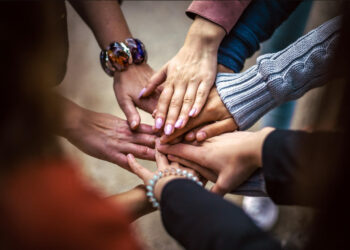By Brandon Walker EBS LOCAL EDITOR
BOZEMAN – As many Gallatin County residents continue awaiting the latest COVID-19 updates and guidelines from the Gallatin City-County Health Department, one name continues to circulate in unison: that of GCCHD health officer, Matt Kelley.
Kelley has been in his current role with GCCHD for a little over a decade, when he and his wife relocated to the Treasure state as he accepted the position. His name has become well known to many as the pandemic has progressed, but there’s more to Kelley than simply his name.
He grew up in Wales, Wisconsin. The oldest of three kids, he has a sister and a brother. A self-described ‘cheese head’, he is an avid Wisconsin sports fan at heart. Kelley enjoys the full scope of outdoor activities that Gallatin County has to offer, from fishing to camping to skiing—although they aren’t at the top of his list currently.
“These days my hobby is, every time I have a chance, spending time with my kids and wife,” he said. Kelley and his wife, Cathy Copp, reside in Bozeman with their daughter, Laila, and son, Henry.
Upon completing high school in Wisconsin, Kelley ventured to Des Moines, Iowa for his undergraduate studies at Drake University, where he obtained a bachelor’s degree in journalism and a minor in political science. After graduating from DU, Kelley accepted a position as a business and city hall reporter for the Omaha World Herald in Omaha, Nebraska. A couple of years into that role, Kelley was transitioned to the position of Washington D.C. bureau reporter, in which he covered Capitol Hill throughout the majority of the 90’s.
While working in D.C., Kelley met Copp—the pair lived on opposite sides of the street from each other. Copp and Kelley were finishing preparations for a two-year Peace Corps stint in Mali, West Africa, all while arranging their own wedding. Barely six months after the couple said “I do”, Kelley and Copp began their work with the Peace Corps in January of 2004, Kelley as water and sanitation volunteer and Copp as an agricultural volunteer.
“While we were working on water projects, and irrigation projects and chicken raising projects, all of it was about improving the health of the community and working with the community,” Kelley said. He described the two-year experience in Africa as a ‘defining moment’ in his life.
When he returned to the U.S., Kelley contemplated what was next in life. He worked briefly writing grants, before ultimately attending graduate school at Johns Hopkins Bloomberg School of Public Health, where he graduated with his master’s degree in public health.
Next came a brief stint working back in D.C. This time he served as an analyst who worked in conjunction with the Department of Health and the Department of Mental Health. “It was kind of another graduate crash course in management. Not just public health, but management,” he said of the position.
In March of 2010, Kelley’s current role as GCCHD health officer became available. He accepted the position and remarked that he has spent the past 10 years compiling the best team of professionals that he possibly could. “We’re dealing with this pandemic and that team is what keeps me going,” Kelley said. “That team is what gets us through day to day at the health department and overall incident command.”
Facing down an unprecedented health crisis, the former journalist and Peace Corps volunteer, along with his staff are navigating unknown waters. “The hardest part of my job right now is that you’re really trying to balance the human cost of this pandemic against the economic cost, which also has a human cost,” he said. “…It’s a huge responsibility and I think it’s been really important to me that this is a community effort because no one person in this situation has all the answers and that there’s tradeoffs to everything and we need leadership and I’m trying to provide that leadership.”
Kelley acknowledged that COVID-19 has been the most demanding challenge that he has faced in his professional career. “There’s some decisions that you know, no matter what you decide, there’s going to be some people who are disappointed and there’s going to be some people who are not. Your decisions also are going to have impact—negative impact—on individuals and families—and that’s hard, that’s really hard, and I think more than anything I want people to know, we recognize that,” Kelley said. “There’s no easy decisions in any of this and so we’re just trying to make the best decisions and explain them really clearly.”
As Gallatin County continues a phased reopening, Kelley and GCCHD will be monitoring the effects and adjusting accordingly. Kelley’s greatest fear, spurred by the situation, is becoming a community divided, but this thought is rivaled by that of his greatest hope.
“I think my biggest hope is that we can work together, stay unified and really work through this difficult period together,” Kelley said. “Because I think that’s the way we’re going to get through it with the least amount of harm to the least amount of people.”












